Assassin’s Creed Valhalla: 3 problems it should fix — but probably won’t
Assassin’s Creed Valhalla has the potential to fix big issues
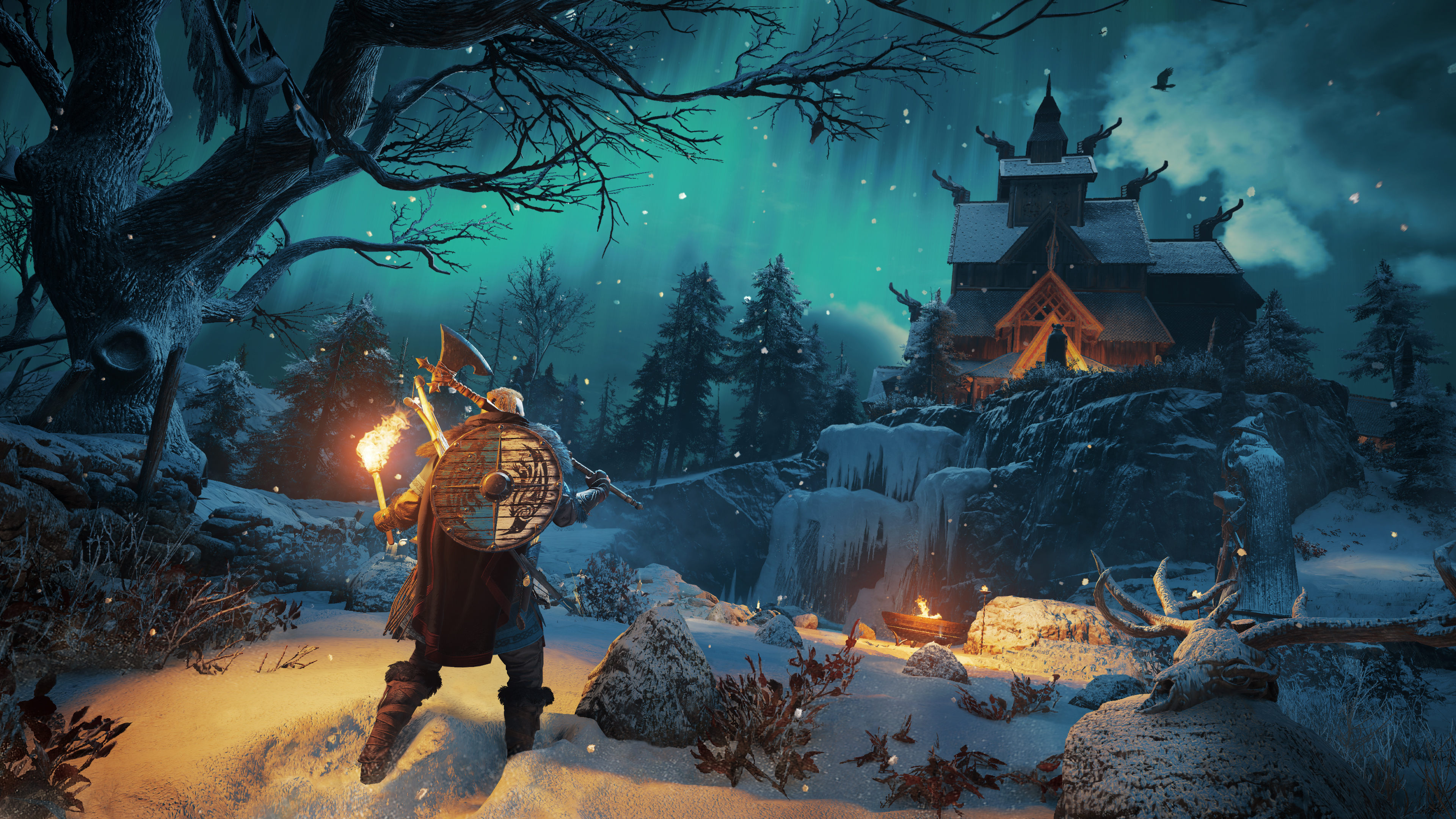
We’ve learned a ton about Assassin’s Creed Valhalla in the past few days. We know that the game will cast you as a Viking named Eivor in 9th-century northern Europe. We know that both ground missions and naval combat will play a big role in the game. We know that you’ll get to manage your own Viking settlement. And we know that the game will come out late this year for both current- and next-gen consoles.
We also know that the game will take a lot of gameplay and structural cues from the two most recent Assassin’s Creed games: Origins and Odyssey. This makes sense, but it also gives me pause. I loved Origins and mostly liked Odyssey, but those two games also embrace some trends that make Assassin’s Creed feel a little less cohesive and focused than it used to.
When I think back on Assassin’s Creed Origins and Odyssey, there are three major problems that weren’t present in, say, Brotherhood or Syndicate. Ubisoft has the capacity to fix these problems, but given what we know about Valhalla so far, I don’t know if the company really wants to. In fact, it seems to be doubling down on some of what made the last two games occasionally feel like a slog.
Granted, Origins and Odyssey — the latter especially — brought in a lot of new fans for the series, some of whom were never really interested in the stealth gameplay or tight narratives in earlier games. Some people undoubtedly want more of what I’d like to see cut down. But I think Assassin’s Creed can either be an historical action/stealth game or it can be an open-world RPG-lite, and the franchise will be stronger once it stops trying to split the difference.
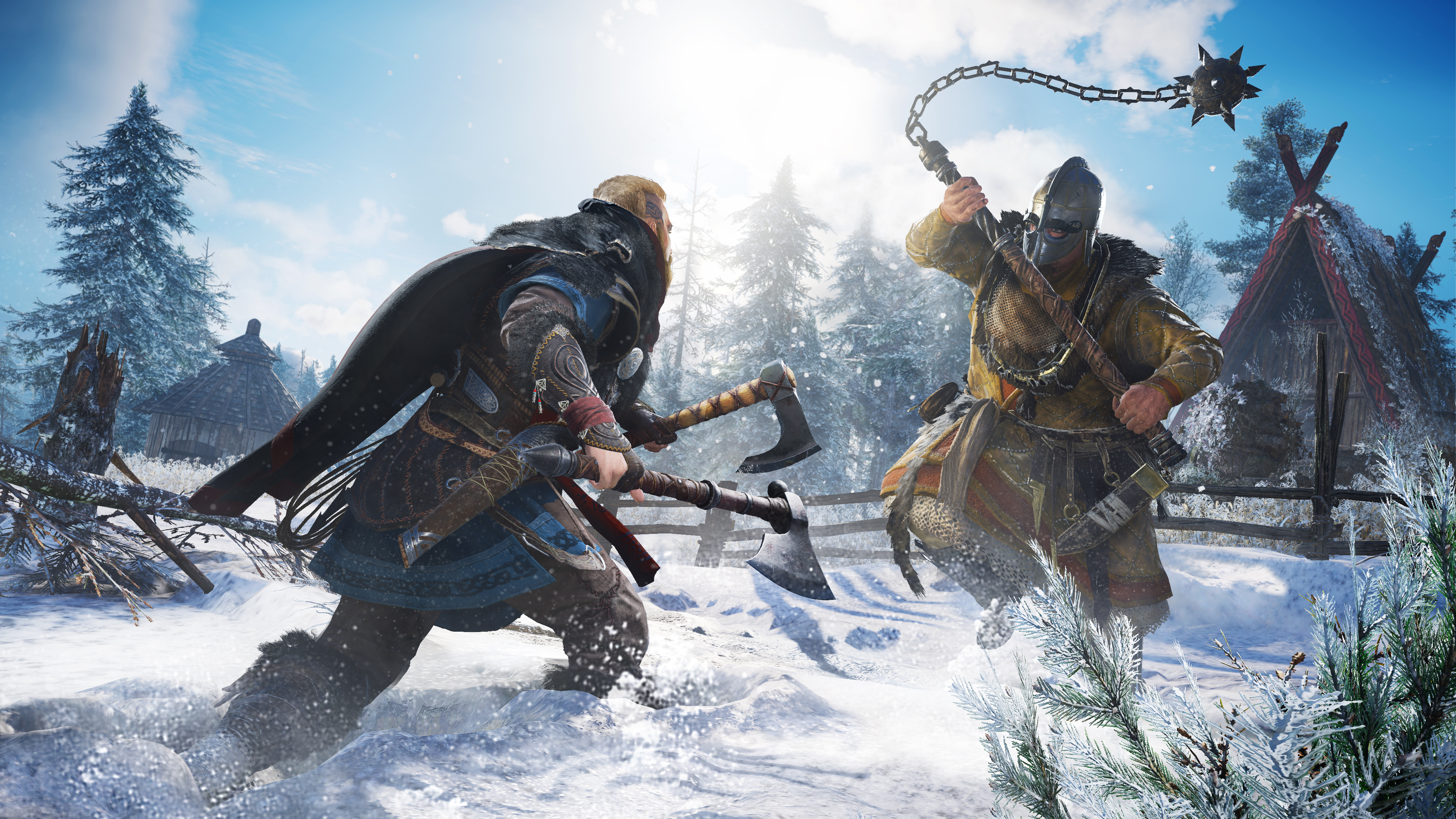
Stealth isn’t always viable
What comes to mind when you think of an assassin? Is it a quiet, surreptitious individual who does the job with maximum finesse, or an unstoppable warrior who busts down the front door and starts brutalizing anyone in sight? The earlier Assassin’s Creed games practically required the former; Origins and Odyssey don’t really mind if you take the latter approach.
I understand that gameplay systems evolve over time, but think about combat back in the original Assassin’s Creed versus the combat in Odyssey. In the first game, you had a handful of weapons — some of which actually helped you disengage from combat — and a variety of tools, many of which were to keep your presence hidden as effectively as possible. Combat itself was a pretty simple affair of attacks and counterattacks. This actually made the final boss feel a bit anticlimactic, but the game was always more about stealth than combat, anyway. Even as late as Assassin’s Creed Unity, stealth was a necessity, since normal enemies could obliterate the protagonist, especially if they swarmed him.
Origins and Odyssey want to let you play your way. Don’t want to infiltrate a base, quietly picking off enemy soldiers as you go, until you stage the perfect ambush for your main target? No problem! Invest in combat skills, then slash, block and dodge to your heart’s content. Your hero is hardly indestructible, but he or she can take a lot of punishment, particularly thanks to an infusion of late-game weapons with health regeneration.
In fact, Origins and Odyssey flat-out require open combat a lot of the time. You can’t hunt most wild animals stealthily (even Assassin’s Creed III let you do this), and certain quests will occasionally throw waves of soldiers at you in large open areas. Surgical strikes aren’t always an option, either, thanks to the game’s “eradication zone.” Killing your opponents rather than sneaking past them is often a requirement for moving a quest along.
Besides, even if you could tackle the whole game stealthily, the combat system won’t let you. That’s because the game’s RPG mechanics put more emphasis on your level and equipment than on your planning. You could sneak into a base undetected, find your target fast asleep and unguarded, slide your hidden blade right into his skull — and then see him jump up with half of his health (or more) intact, calling for reinforcements and ready to bludgeon you for your intrusion. To say that this weakens the immersion is an understatement.
Ubisoft has already explained that Valhalla will feature a varied open combat system, lots of equipment and a skill tree, just like its predecessors, so don’t expect a return to Assassin’s Creed’s stealthy roots just yet. But it would be nice.
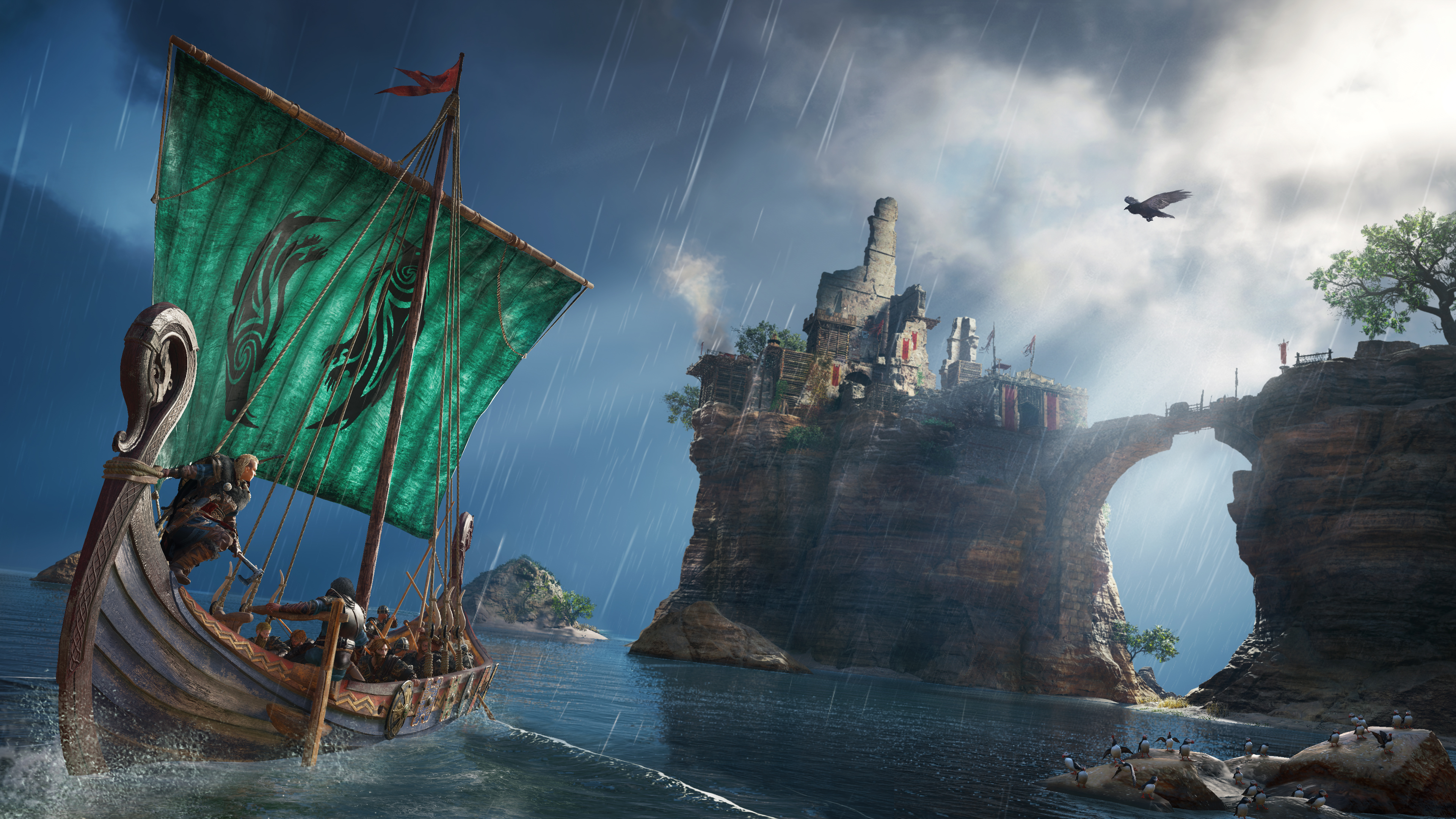
The world is too big
Some gamers are going to roll their eyes at this one. Am I really complaining about a game giving us more? At a time when so many developers are carving out features, Assassin’s Creed Origins and Odyssey (especially Odyssey) gave us so much to do. The map of the Greek Isles was positively massive, with new quests to complete, forts to infiltrate, animals to hunt and political balances to upset in every area. The main story had three separate branches, and that’s to say nothing of the two massive DLC packs that expanded the game even further.
But Assassin’s Creed Odyssey had perhaps 30 hours’ worth of interesting content, spread out over about 80 hours of gameplay. The game is absolutely packed to the gills with things to do. But once you’ve killed dozens of cultists, raided hundreds of enemy outposts, sunk a fleet of warships, taken down a legion of mercenaries and explored every city-state in Greece — there’s still more of them. After a certain point, it’s impossible to approach Odyssey with anything but a resigned sigh. Even though the core gameplay is very good, it gets repetitive, and then keeps going.
One argument presents games like Assassin’s Creed Odyssey as opportunities to chill out, perhaps with a favorite TV show or podcast on in the background. But I maintain that if you have to do something else to entertain yourself during a game, the game is not doing its job properly.
Since Assassin’s Creed Valhalla promises to let you explore both the British Isles and parts of Scandinavia, I doubt it will be much smaller than Odyssey, if at all. But a larger game doesn’t always mean a better one; sometimes, it just means a more unfocused one.
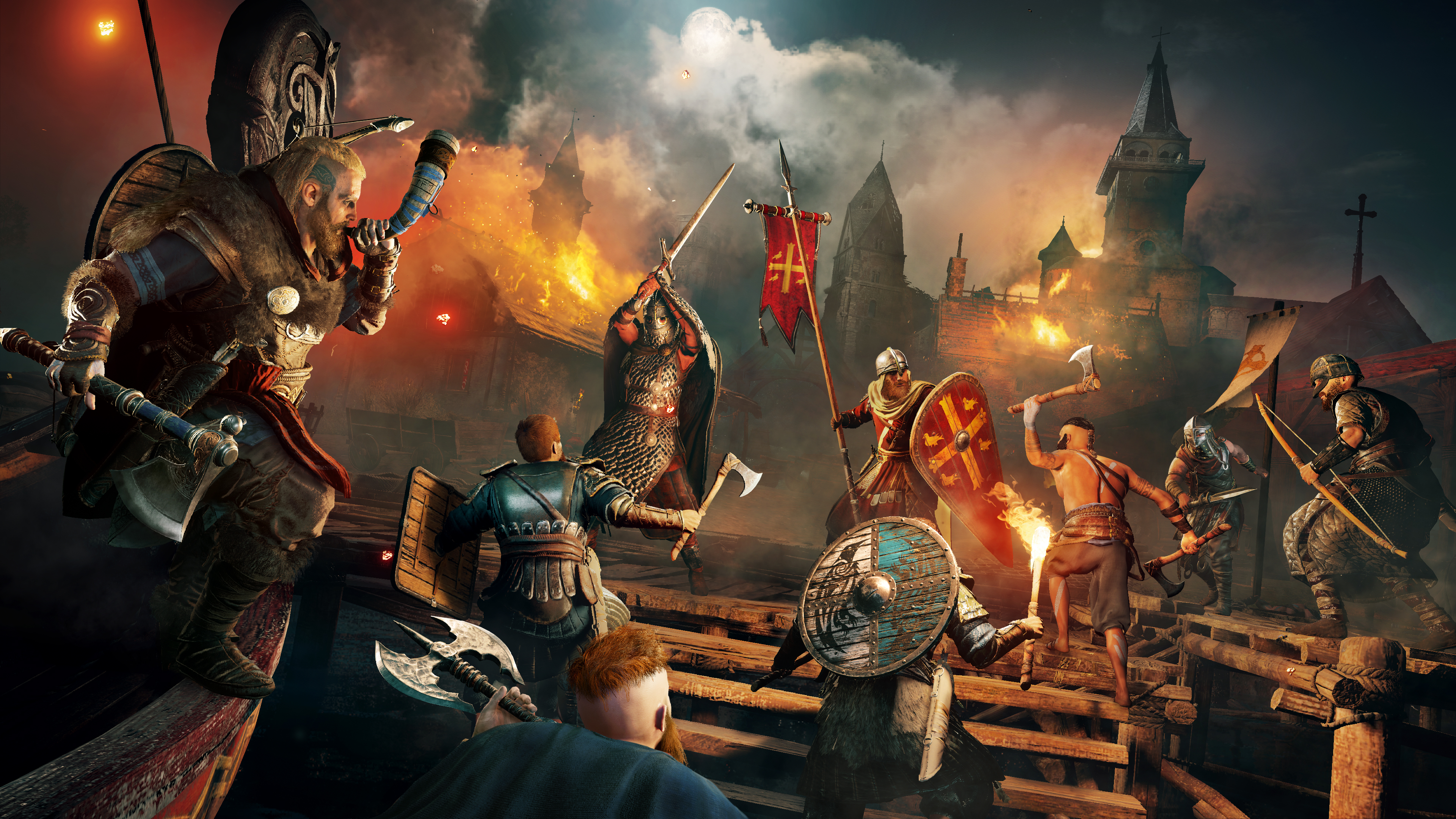
Conquest battles are tedious
The one thing I really didn’t want to see back from Assassin’s Creed Odyssey was the conquest battles. These mass combat scenarios let you and an army fight against an opposing force, and challenged you to defeat a number of enemy champions before they could overwhelm your forces.
First off, it’s absolutely impossible to employ stealth in a conquest battle, which goes back to my earlier concern about the series not playing to its strengths. But even discounting that, conquest battles are tedious affairs: protracted bouts of mindless killing, punctuated by somewhat more strategic combat with slightly more durable foes. It was interesting to participate in one or two conquest battles; by the dozenth, I was thoroughly tired of them.
Odyssey also had the problem of letting you repeat conquest battles indefinitely, for either Athens or Sparta. The rewards were meager, and you could pit the two sides against each other indefinitely, making all your work to install one power or the other feel pointless.
Based on Valhalla’s trailer, conquest battles will make a return in the next Assassin’s Creed, and I can already feel my eyes glazing over. If injected sparingly, conquest battles could be an effective and exciting tool — even the very first Assassin’s Creed had a mass combat scenario just before the penultimate boss. But it’s hard to feel like an assassin in the midst of an enormous, chaotic open battle.
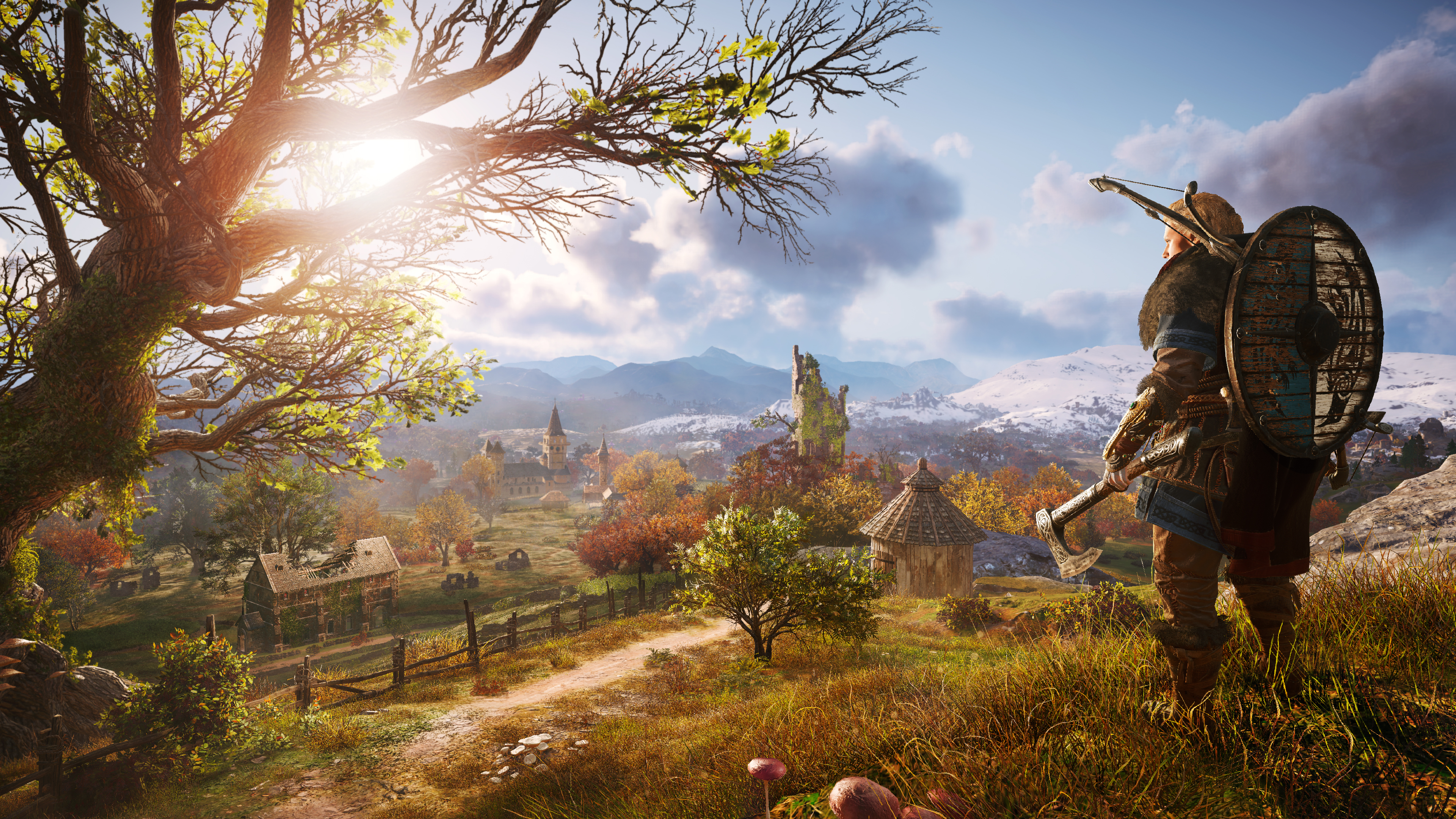
A solid core
Even taking all those caveats into account, though, I must admit that I’m still excited for Assassin’s Creed Valhalla. Origins and Odyssey overstayed their welcome, sure, but they also had interesting stories and extremely solid core gameplay. The conflict between the English and the Vikings in the 9th century is a fascinating historical backdrop, and naval combat is almost always an excellent addition to an Assassin’s Creed game.
Still, I can’t help but feel that Assassin’s Creed used to be a leaner, meaner experience, and the new games have generally made it bigger, but not necessarily better. We’ll see what ultimately happens with Valhalla when it launches late this year, and if it winds up being a smaller experience, I won’t be at all disappointed. Less can be more, especially when it comes to open-world games.
Sign up to get the BEST of Tom's Guide direct to your inbox.
Get instant access to breaking news, the hottest reviews, great deals and helpful tips.
Marshall Honorof is a senior editor for Tom's Guide, overseeing the site's coverage of gaming hardware and software. He comes from a science writing background, having studied paleomammalogy, biological anthropology, and the history of science and technology. After hours, you can find him practicing taekwondo or doing deep dives on classic sci-fi.
-
BrianDavion I get what you're trying to say but I don't think Oddessy removed stealth as much as you think the eradication zones for example work best with stealth being used to give yourself the advantage. I found it worked a bit like The Batman Arkham games, in that you can use a combination of stealth and brute force to clear the bad guys, trying to brute froce without ANY stealth worked badly. that said I agree, not having an assasinate ability kill a guy was ANNOYING. being able to use pin point targeted assasinations is something that NEEDS to be on the table. and hopefully their comments that tradtional levels (while retaining a skill tree) means this will, effectively, be the caseReply -
TheTinMan531 Hey Marshall, I understand your points but I agree with Brian about stealth. People have this romanticized idea of what they think Assassin's Creed is, and they imagine this stealth focused experience, but as a fan of the series that really isn't the case. Having gone through all the older installments again recently the stealth options are incredibly bare bones. AC1 has a slightly higher emphasis on stealth, but starting with AC2 there really isn't any reason to do anything other than kill guards by the dozen because of how overpowered your character is. The only way Ubisoft incentivized players to take a stealthy approach is through those awful detection=instant fail encounters. Origins massively improved the stealth options and gameplay of the series, making combat an actual challenge and providing many more opportunities for infiltration. While Odyssey's leveling system took away from the stealth side of things, it's still way better than anything we've had in any of the pre-origins AC games. I'm not saying the stealth is great, because I'd love for them to add depth and mechanics to the stealth opportunities in Valhalla, but to say that stealth is less pronounced in the newer games just feels wrong to me after the drastic improvements Origins made to stealth.Reply
You talk about the games requiring combat most of the time and not being able to go through most of the game stealthily, but you've never been able to do that in Assassin's Creed. Even in AC2, the gold standard of AC games, a majority of the "assassination missions" are actually combat encounters, some of which involved full on battles between factions. Again, it's ok to WANT Assassin's Creed to be a stealth franchise, but to claim that it already used to be just ignores a decade of gameplay that focused much more on narrative setpieces and combat than it ever did on stealth. -
BrianDavion and as I said, with Oddessy (which I'm currently playing through again) I've been using a LOT of stealth, IMHO the game almost plays like Arkham city, you approuch an area and wittle down their numbers from stealth (possiably clearing the whole thing under stealth) but once stealth ends yeah you leap out and kick some serious tail. the various AC games have always been like this, but oddessy in partiuclar works for this and I hope to see Valhalla keep to that.Reply

